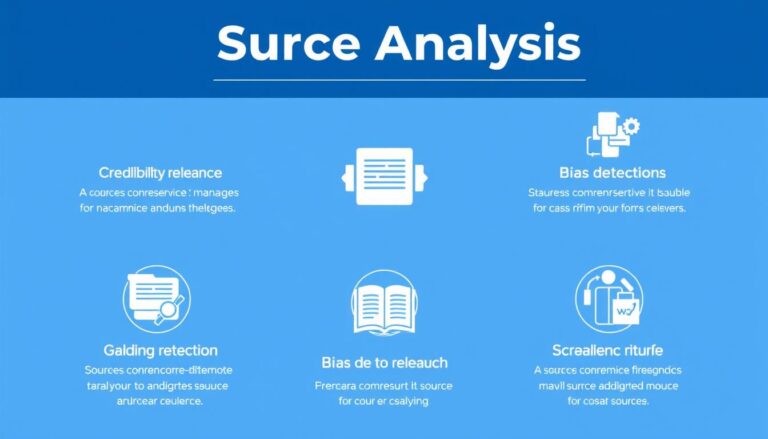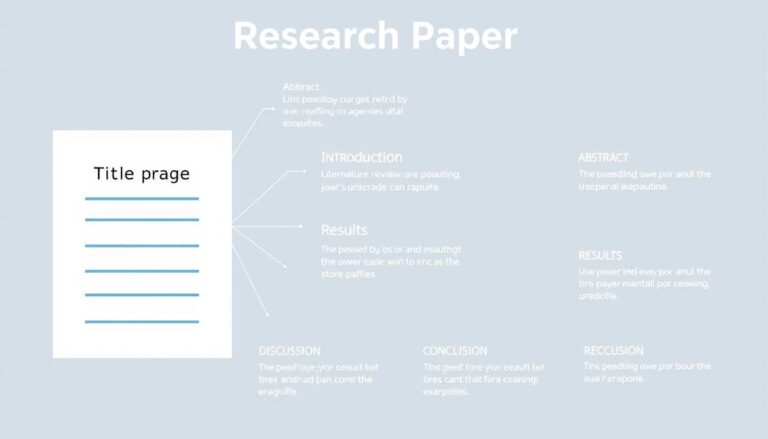Learning how to write hypothesis statements effectively is a fundamental skill for any researcher. A well-crafted hypothesis serves as the backbone of scientific inquiry, providing a clear direction for your research and helping you design appropriate experiments. In this comprehensive guide, we’ll walk through the essential steps to formulate strong, testable hypotheses for your research projects, complete with practical examples and expert tips to enhance your scientific writing.
What Is a Hypothesis?
A hypothesis is a precise, testable statement that predicts the relationship between variables in a research study. It represents an educated prediction based on existing knowledge, observations, and logical reasoning rather than mere guesswork. A good hypothesis forms the foundation of the scientific method and guides the entire research process.

Unlike opinions or assumptions, hypotheses are formulated before conducting any research and are based on previous studies, theories, and observations. They help researchers focus their investigations and provide a framework for analyzing results. The ability to write a clear, concise hypothesis is crucial for successful scientific research.
Key Characteristics of a Good Hypothesis
Understanding what makes a good hypothesis will help you craft more effective research statements. Here are the essential characteristics your hypothesis should possess:

When learning how to write hypothesis statements, remember that these characteristics serve as a checklist to ensure your hypothesis is scientifically sound and will effectively guide your research.
Types of Research Hypotheses
Research hypotheses come in several forms, each serving different purposes in the scientific process. Understanding these types will help you select the most appropriate format for your research question.
Simple vs. Complex Hypotheses
Simple hypothesis: Predicts the relationship between a single independent variable and a single dependent variable.
Example: “Daily exercise increases cognitive function in older adults.”
Complex hypothesis: Predicts relationships between two or more variables.
Example: “Both regular exercise and a Mediterranean diet improve cognitive function and reduce stress levels in older adults.”
Directional vs. Non-directional Hypotheses
Directional hypothesis: Specifies the expected direction of the relationship between variables.
Example: “Increased study time leads to higher test scores.”
Non-directional hypothesis: States that a relationship exists but doesn’t predict its direction.
Example: “There is a relationship between study time and test performance.”

Null and Alternative Hypotheses
These two types of hypotheses work together in hypothesis testing:
Null Hypothesis (H₀)
States that there is no relationship between the variables or that any observed relationship is due to chance.
Example: “There is no relationship between caffeine consumption and alertness levels.”
Alternative Hypothesis (H₁ or Hₐ)
States that there is a significant relationship between the variables that is not due to chance.
Example: “Caffeine consumption increases alertness levels.”
Associative and Causal Hypotheses
Associative hypothesis: Suggests a relationship where variables change together but doesn’t claim one causes the other.
Example: “There is a positive association between hours of sleep and academic performance.”
Causal hypothesis: Proposes that changes in one variable directly cause changes in another.
Example: “Increased sleep duration causes improved academic performance.”
Explore More About Hypothesis Types
Want to deepen your understanding of different hypothesis types? The Stanford Encyclopedia of Philosophy offers an excellent resource on scientific hypothesis formulation and testing.
How to Write Hypothesis in 5 Steps
Creating an effective hypothesis involves a systematic approach. Follow these five steps to develop a strong hypothesis for your research project:

Identify Your Research Question
Start by clearly defining what you want to investigate. A good research question should be specific, focused, and relevant to your field of study.
Example: “Does exposure to natural light affect workplace productivity?”
Conduct Preliminary Research
Review existing literature and theories related to your research question. This helps you understand what’s already known about the topic and identify gaps in knowledge.
Use academic databases like Google Scholar or JSTOR to find relevant studies and theories.
Formulate Your Hypothesis
Based on your research question and literature review, develop a clear statement that predicts the relationship between variables. Make sure it’s specific, testable, and addresses your research question.
When learning how to write hypothesis statements, remember to use clear, precise language and avoid ambiguity.
Identify and Define Variables
Clearly identify the independent variable (what you manipulate or observe) and the dependent variable (what you measure or observe changing as a result).
Independent Variable
The factor you manipulate or observe variations in.
Example: Hours of exposure to natural light
Dependent Variable
The outcome you measure that may be affected by the independent variable.
Example: Workplace productivity (measured by tasks completed)
Ensure Testability and Refine
Verify that your hypothesis can be tested through experimentation or observation. Refine your statement to ensure it’s clear, concise, and addresses all necessary components.
Ask yourself: “Can I design an experiment or collect data to test this hypothesis? Can the results either support or refute my prediction?”

“A hypothesis is a tentative explanation that accounts for a set of facts and can be tested by further investigation.”
Research Hypothesis Examples
Examining well-crafted examples can help you understand how to write hypothesis statements for different research scenarios. Here are some examples across various disciplines:
Simple Hypothesis Examples
| Discipline | Hypothesis Example | Variables |
| Psychology | Regular meditation reduces anxiety levels in college students. | IV: Meditation practice DV: Anxiety levels |
| Biology | Plants exposed to classical music grow faster than those in silence. | IV: Exposure to music DV: Plant growth rate |
| Education | Students who receive peer tutoring achieve higher test scores. | IV: Peer tutoring DV: Test scores |
Complex Hypothesis Examples

Null and Alternative Hypothesis Examples
Null Hypothesis (H₀)
Alternative Hypothesis (H₁)

Download Hypothesis Examples
Need more examples for your specific field? The University of Michigan offers a comprehensive guide with field-specific hypothesis examples.
Common Mistakes When Writing Hypotheses
Even experienced researchers can make mistakes when formulating hypotheses. Being aware of these common pitfalls will help you avoid them in your own research:

Good Hypothesis Practices
- Using clear, specific language
- Identifying measurable variables
- Establishing a testable relationship
- Basing predictions on existing knowledge
- Keeping it concise and focused
Common Hypothesis Mistakes
- Making vague, untestable statements
- Confusing hypotheses with research questions
- Including too many variables
- Making unfalsifiable claims
- Using biased or loaded language
Examples of Weak vs. Strong Hypotheses
| Weak Hypothesis | Strong Hypothesis | Improvement |
| Music might affect how people feel. | Listening to classical music for 30 minutes daily reduces self-reported stress levels in college students. | Added specificity, measurable variables, and target population |
| Is vitamin C good for preventing colds? | Daily supplementation of 1000mg vitamin C reduces the incidence of common cold symptoms in adults during winter months. | Changed from question to statement, added specific dosage and timeframe |
| Technology use is bad for children. | Children aged 8-12 who use screens for more than 4 hours daily show lower scores on attention span tests compared to those with less than 2 hours of daily screen time. | Removed value judgment, added specific variables and measurements |

Learning how to write hypothesis statements effectively requires practice and attention to detail. By avoiding these common mistakes, you’ll develop stronger hypotheses that better guide your research.
From Hypothesis to Testing: Next Steps
Once you’ve formulated a strong hypothesis, the next step is to design an appropriate method to test it. This process is crucial for validating your predictions and drawing meaningful conclusions from your research.

Key Steps in Hypothesis Testing
Design Your Study
Choose an appropriate research design (experimental, correlational, etc.) that will effectively test your hypothesis. Consider sample size, control groups, and potential confounding variables.
Collect Data
Gather relevant data through experiments, surveys, observations, or other appropriate methods. Ensure your data collection methods are reliable and valid.
Analyze Results
Use appropriate statistical methods to analyze your data and determine whether they support or refute your hypothesis. This often involves comparing your results to a predetermined significance level.
Draw Conclusions
Based on your analysis, decide whether to accept or reject your hypothesis. Remember that failing to reject the null hypothesis doesn’t necessarily mean it’s true—it means you don’t have sufficient evidence to reject it.
Refine and Iterate
Use your findings to refine your hypothesis or develop new ones for future research. Science is an iterative process of continuous improvement and discovery.

Explore Statistical Methods for Hypothesis Testing
For a deeper understanding of statistical methods used in hypothesis testing, check out this comprehensive guide from Khan Academy.
Conclusion: Mastering the Art of Hypothesis Writing
Learning how to write hypothesis statements effectively is a fundamental skill for any researcher. A well-crafted hypothesis provides direction for your research, helps you design appropriate methods, and forms the basis for drawing meaningful conclusions. By following the steps outlined in this guide and studying the examples provided, you’ll be well-equipped to develop strong, testable hypotheses for your research projects.

Remember that hypothesis development is both a science and an art. It requires a solid understanding of your field, critical thinking skills, and the ability to make logical predictions based on existing knowledge. With practice and persistence, you’ll become more proficient at crafting hypotheses that advance knowledge in your field of study.
Further Resources for Research Methodology
To continue developing your research skills, explore these valuable resources on research methodology and scientific writing.





